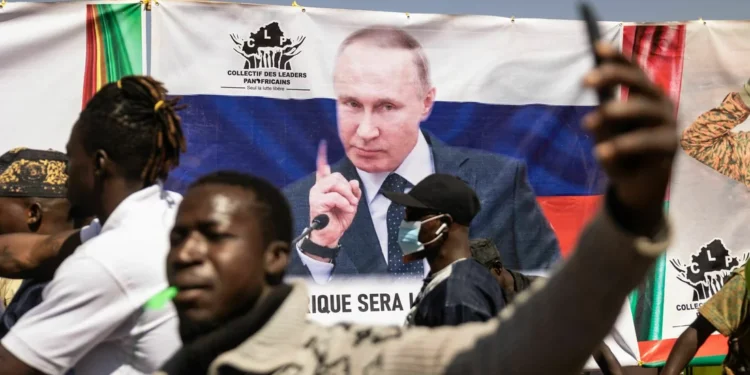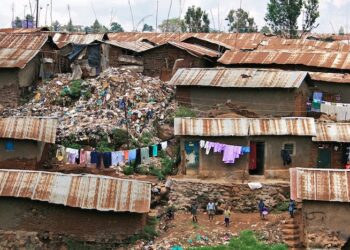Africa is a continent of interest to the four corners of the world due to its natural resources, location and population. Global and regional superpowers like the United States of America, China, Russia, Saudi Arabia and the Middle East, all have economic, geopolitical and security interests in Africa.
According to the Africa Centre for Strategic Studies, “At least 39 African countries have been the target of a specific disinformation campaign.” The Centre notes in an article titled: ‘Mapping a Surge of Disinformation in Africa,’ published on 13 March 2024 that 20 of the 39 “have been targeted three or more times, up from just seven countries meeting that threshold in 2022.” It points out that: “African countries experiencing conflict are subject to much greater levels of disinformation—facing a median of 5 campaigns– highlighting the connection between instability and disinformation.” Additionally, it highlights that: “Nearly 60 per cent of disinformation campaigns on the continent are foreign state-sponsored—with Russia, China, the United Arab Emirates (UAE), Saudi Arabia, and Qatar as the primary sponsors.”
Economically, Russia’s activities in Africa are focused on accessing valuable natural resources and expanding trade. Although Russia’s trade with Africa is significantly smaller compared to China and the United States, it has grown, reaching approximately $18 billion in recent years. Key exports include grain, with nearly 30% of Africa’s grain imports coming from Russia, as well as oil, gas, and weapons. Russia also has substantial interests in African mining, particularly for gold, diamonds, and critical minerals essential for advanced technologies. Major Russian companies like Rosneft and Gazprom are involved in hydrocarbon projects, while Rosatom is constructing Egypt’s first nuclear power plant (Council on Foreign Relations) (CSIS).
Security-wise, Russia’s involvement is marked by the deployment of private military companies (PMCs) like the Wagner Group, which provides military support to various governments in exchange for access to natural resources. These PMCs operate in countries such as Sudan, Libya, the Central African Republic, and Mali, offering security services and military training. This presence allows Russia to exert influence and secure strategic military bases, such as the naval facility planned in Port Sudan. These activities also align with Russia’s broader goal of countering Western influence and fostering relationships with African military regimes (Africa Center) (DW).
Geopolitically, Russia aims to position itself as a strategic partner for African nations, leveraging high-level diplomatic engagements, such as the Russia-Africa summits. These summits have resulted in numerous cooperation agreements in arms control, information security, and counter-terrorism. Russia uses these relationships to garner support in international fora like the United Nations, where many African countries have supported Russia or abstained from votes condemning its actions in Ukraine and Crimea (CSIS).
It is no secret that Russia sees Africa as a perfect opportunity to create a multipolar world order from the status quo. This quest has been the main motivation behind Russia’s forays and overtures in Africa. Russia is so keen on breaking the US-led bipolar geopolitical system to the extent that it sometimes resorts to misinformation and disinformation tactics to make this happen. Per the Centre’s count, Russia leads the disinformation campaign in Africa. The Kremlin, according to the Africa Centre for Strategic Studies, has “sponsored 80 documented campaigns, targeting more than 22 countries,” noting: “This represents nearly 40 per cent of all disinformation campaigns in Africa.” These 80 campaigns, the Centre adds, “have reached many millions of users through tens of thousands of coordinated fake pages and posts.” The Centre asserts that Russia has used disinformation to “undermine democracy in at least 19 African countries, contributing to the continent’s backsliding on this front.” Those countries include Algeria, Angola, Burkina Faso, Burundi, Cameroon, Central Africa Republic, Chad, Comoros, Congo Brazzaville, Cote d’Ivoire, Democratic Republic of Congo, Egypt, Eritrea, Ghana, Guinea, Libya, Madagascar, Mali, Mozambique, Niger, Rwanda, Senegal, South Africa, South Sudan, Sudan, Tunisia, Uganda, and Zimbabwe. Russia, the Centre points out, uses tools such as “election/political interference; illicit arms/Wagner/Africa Corps; undermining the UN, disinformation and political support for extra-constitutional seizures/term limit evasion.”
Russia, according to the statistics published by the Centre, is the “single largest sponsor of Africa-wide disinformation campaigns with 16 of these far-reaching operations.” It is followed closely by China and the two powers aim to “stoke anti-Western and anti-United Nations sentiment, and spread confusion about climate change science” among others. “Two prominent disinformation influencers connected to Russia, for example, have a combined social media following of over 28 million users and their content has been amplified by a sprawling ecosystem of hundreds of Russian-linked accounts and pages,” the Centre cited as an example to demonstrate the magnitude of the Kremlin’s disinformation onslaught in Africa.
Explaining the Kremlin’s modus operandi in the disinformation campaign in Africa, the Centre said it involves “paid African influencers and digital avatars,” as well as the circulation of “fake and out-of-context videos and photographs.” Also, it notes that copy-and-paste messages “are amplified through multiple channels of Russian state-controlled media, radio, and official communications, creating the repetitive echo chambers in which disinformation narratives become rote.” To aid the spread, the Centre mentions that Russian embassies “appear to have helped set up a network of ostensibly African grassroots front organisations (Partenariat Alternatif Russie-Afrique pour le Développement Économique (PARADE) and Groupe Panafricain pour le Commerce et l’Investissement (GPCI)) to generate and amplify disinformation.” All this is engineered by the Wagner Group (Russian Africa Corps) and the Africa Initiative News Agency, connected to Russian intelligence services and overseen by Artem Sergeyevich Kureyev from Moscow.
West Africa, the biggest target, accounts for nearly 40 per cent of documented disinformation campaigns in Africa, with half of them being Russia-connected, the Centre notes, indicating that the Sahel has seen the most of these campaigns. “Russia has inundated the Sahel with disinformation since 2018 with 19 campaigns directed at Mali, Burkina Faso, and Niger. All three countries have experienced military coups that Russian networks have helped prime and promote despite their abysmal track records,” asserts the Centre. The region has seen 72 campaigns targeting 13 countries.
In East Africa, where there have been 33 campaigns targeting eight countries, traces of Russia’s disinformation campaign are also evident in Sudan, according to the Africa Centre, as far as the ongoing conflict between the Rapid Support Forces (RSF) and Sudanese Armed Forces (SAF) is concerned.
Additionally, the Centre adds that in Central Africa, where there have been 21 campaigns targeting four countries, “Russia has been connected to eight disinformation campaigns in CAR going back to at least 2018. Russian-connected disinformation in CAR blurs the lines between external and domestic disinformation, having cultivated a corps of Russian-instructed journalists, bloggers, and regime spokespersons who promote the Touadéra regime’s interests, including supporting the removal of term limits.”
For Southern Africa, where 25 campaigns have targeted eight countries, the Africa Centre reports that: “In addition to pushing narratives intended to polarise communities, fan distrust, and bolster the African National Congress, Russia has used influential South Africans to promote pro-Russian narratives within South Africa and abroad.”
Finally, in North Africa, where five countries were targets of 15 campaigns, the Africa Centre reveals that: “Egypt has emerged as a hub for spreading Russian narratives in the region with Egyptian state-run media outlets regularly republishing Russian state media content,” while “Russian disinformation in Libya has sought to boost warlord Khalifa Haftar’s Libyan National Army (LNA), stoke nostalgia for the Qaddafi regime, and disrupt the Libyan Political Dialogue Forum.” Also, “Disinformation undermining the UN Support Mission in Libya has been widely circulated, benefiting the LNA,” the Centre added.































